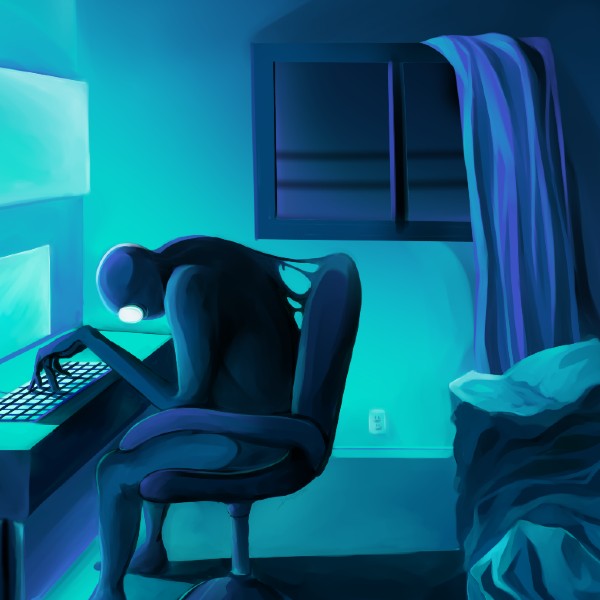
My experiences with online learning have been irritating and impeded my success
I was recently listening to a podcast about machine learning and education, in which Charles Isbell, a professor who teaches at an Ivy League university, argued that online learning is the future of education.
I have to admit that I felt shocked and angry at the time, considering my own experiences at UVic with online education. Online school is a necessity considering the COVID-19 pandemic that we’re all living through. But how could any professor argue that online education is the future, outside of its current context within the pandemic, considering all of its obvious drawbacks?
The podcast guest was a professor of computer science so from their perspective, it may be a logical assertion. Since computer science has helped to dramatically revolutionize every modern industry from food delivery to entertainment, it’s only logical to apply that to education, right?
No, I don’t think so, or I think it would be premature to think post-secondary institutions are ready to take that leap.
My opinion seems to be largely reflective of the student body on this issue. A Martlet survey from June 2020 showed that only 2.5 per cent of students believe online education has provided the same quality as in-person classes.
While the introduction of technology to education is both useful and necessary, the advent of online education in its current form — classes being held on Zoom, lectures being pre-recorded and uploaded ahead of time, no face-to-face interaction — is not the future of education. At least not yet, with its many drawbacks and inconveniences.
To be fair, online classes do have a unique set of benefits as well. Asynchronous classes allow students to basically create their own schooling schedule for those that are balancing multiple commitments. Online chat functions allow students to ask questions more freely than they might otherwise in a packed lecture hall.
But there are also barriers to learning that are unique to the online environment. The risk of distractions from improper work environments at home is one barrier. Of course, distractions also exist in traditional classes. But the overall school environment is still designed to allow for learning. Many students do not have a reserved distraction-free space for learning at home. This is further complicated by loud siblings, roommates, pets, neighbours, and children. My dogs tend to bark during my classes, so now I have my mic muted by default for fear of ruining the class.
Traditional classes usually have a low risk for technical problems that interrupt the flow of the lesson. Garbled audio, microphones not working, and connections being lost in the middle of a presentation are now commonplace distractions in online classes.
I myself once had my mic cut at the beginning of a 20-minute presentation I was about to give, which was worth 25 per cent of my final grade. There’s nothing like the sinking feeling in the pit of your stomach when you realize your mic is off while you’ve babbled into oblivion (especially when you realize it’s because you left the physical mute switch for your mic turned on).
The reverse situation, a mic being on when you meant to have it turned off can be much worse. There are entire compilations of students going to the bathroom or getting in arguments with their parents while their mic is still on, unaware that their entire class can hear them when they should be listening to a lecture instead.
As a student of the humanities and social sciences, I prefer traditional, in-person classes for the ability to facilitate better classroom discussions on the material being taught. I want to sit in the same room as my peers to hear their opinions on Kant and Marx or on the lessons of the First World War.
I have also lacked motivation for online school. In-person classes create motivation by forcing students to travel to campus. This lack of motivation is reflected in the lower rates of learner engagement observed in Australian higher education, which dropped from 60 per cent in 2019 to just 44 per cent in 2020. This is hardly a novel observation. Having to get up, get dressed, take a shower, and drive or bus to class obviously produces a higher level of engagement than rolling out of bed and turning your camera on.
Lastly and most importantly, my connections with my peers are severely limited online. There is a complete lack of any possible networking between students in online classes. Students do not actually meet any of their peers, which severely limits their future prospects for building the lifelong social connections that a university education usually offers when done in-person. I have not met a single new friend from school in the 10 months I have attended UVic online, due entirely to not meeting any of my peers face-to-face. This has robbed me of endless networking and social opportunities.
Additionally, students that graduate into an economic downturn have recorded lower lifetime earnings than those that graduate during an upturn, and fewer career connections can only lower the odds of finding financial stability.
The aforementioned drawbacks to online education quickly begin to add up, adding to the already stressful role of being a university student.
Online education is not in our immediate future. It’s in an early beta-stage at best, and needs a lot of work.






